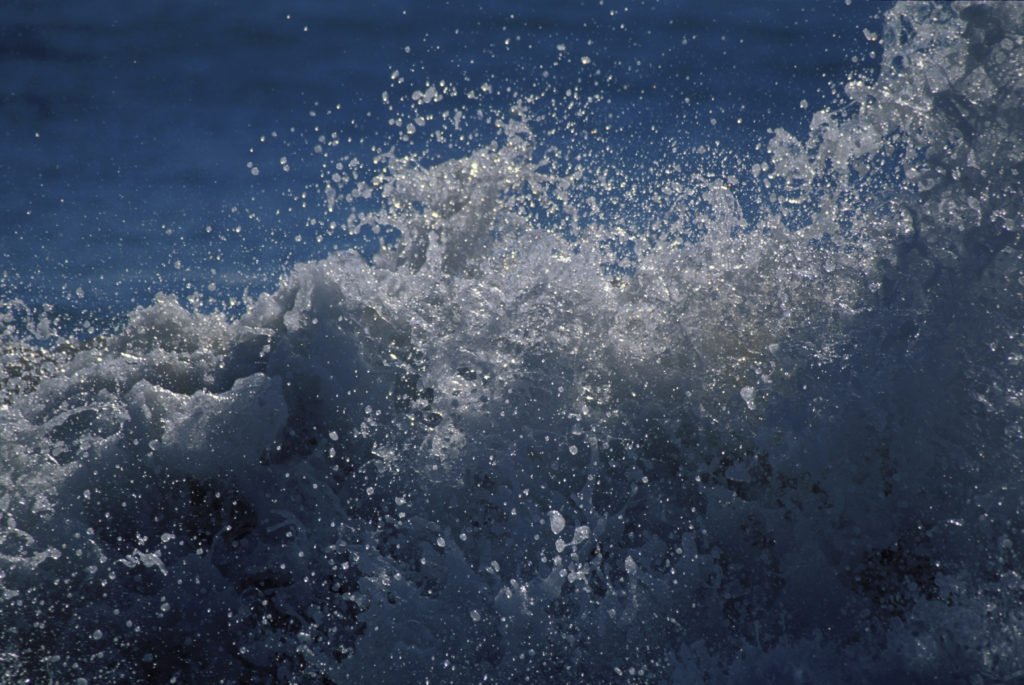
A report from the U.N. Intergovernmental Panel on Climate Change lays out how climate-damaging emissions have harmed the ocean. It's a strong call to fight back for our oceans and our planet. Photo: EcoPhotography
New Englanders are deeply connected to the ocean. Our economic prosperity, history, and culture have long been rooted in the sea. Half of the oxygen we breathe comes from the ocean, which covers three-quarters of our planet’s surface. And under the waves is a marvelous world that most of us have never seen or experienced firsthand.
But the world’s oceans are in dire straits. A startling report released last week from the U.N. Intergovernmental Panel on Climate Change confirms what we at CLF have been saying for years: Without drastic measures to halt climate-damaging emissions and protect our oceans, life in New England, and around the world, will be forever changed.
The report is alarming in its detailed documentation of the dramatic changes taking place in our oceans because of runaway carbon dioxide emissions. Although some changes are irreversible, we still have an opportunity to save our ocean.
The Climate Crisis Already Impacts the Ocean
Beyond our beautiful beaches and abundance of seafood, the ocean benefits all of us in ways only now becoming clear. As humans have continued to pump greenhouse gases into the atmosphere, our oceans have borne the brunt. They’ve absorbed the majority of the world’s excess heat and approximately a quarter of the carbon dioxide emissions from our relentless burning of fossil fuels. After decades of enduring this abuse, the world’s oceans are warmer, more acidic, and losing oxygen.
The U.N. report documents in grave detail the devastating impacts that have resulted. Wildlife, from whales to fish to seabirds, are moving into new areas as their previous homes become inhospitable. Arctic sea ice is melting at an unprecedented rate. Warming seas are driving heavier rainfall and more extreme hurricanes and storms. Sea levels are rising, and ocean waters are increasingly lapping at our front doors with each major storm.
New England is feeling these effects acutely — the Gulf of Maine is warming faster than just about anywhere else on earth. Scientists and fishermen are already seeing our traditional fish and crustaceans, such as lobster, migrate north. This has resulted in a bonanza for Maine lobstermen, while those in southern New England suffer dramatic declines in their catch.
Warming waters also put critically endangered North Atlantic right whales in harm’s way. As they follow their favorite plankton to new areas farther north, they face additional perils of entanglement from the Canadian snow crab fishery and deadly propeller strikes from the heavy commercial shipping traffic in the Saint Lawrence Seaway.
We Need More – and Faster – Action to Save Our Oceans
The situation is dire. But for me, it’s a reason to fight even more tenaciously. We still have time to act here at home to protect our way of life for future generations. But we don’t have a moment to waste.
Change at the local level is critical, and New England is leading the way in reducing carbon pollution and protecting critical parts of our ocean from drilling and overfishing. But we need to go much further, much faster.
First, we must end our fossil fuel addiction and reach net-zero emissions no later than 2050. The link between burning fossil fuels and destroying oceans is abundantly clear – as is the need to ditch dirty fuels like oil and gas for good. This means transitioning to renewable energy like wind and solar, which will help curb the emissions that are devasting our waters. This process is already underway in several states, but we need to kick it into high gear, now.
We stand at a critical juncture, and we need bold local action that matches the crisis at hand. Putting strong climate laws on the books, like Maine’s recent legislation to slash climate-damaging emissions, will help ensure we reach our goals.
Creating a Resilient Ocean
It’s also critical that we rebuild the many depleted populations of marine mammals, fish, and other ocean wildlife so that they have a fighting chance to withstand the impacts of climate change we can’t avoid. Here in New England, for example, government officials must take swift and effective action to protect North Atlantic right whales from lethal entanglement in commercial fishing gear – the number one killer of this iconic species. Atlantic cod, New England’s founding fish, has been overfished for three decades and counting, causing its population to plummet to record lows. Federal fisheries managers must act now to protect this and other species and their habitats, strengthening populations and their resilience to our changing climate.
Our region is home to the Northeast Canyons and Seamounts – the Atlantic’s first marine national monument. This wonderland of biodiversity is protected from commercial fishing, oil and gas drilling, and mining. Going forward we must set aside significantly more areas of our ocean – a core strategy to build its resilience to climate change, help marine life thrive, and ensure that fishing as a livelihood and recreational pastime is sustainable well into the future.
If we choose not to make these changes, the blame for further damage to our oceans and our planet will fall squarely on us.
The world’s oceans has been taking the climate blow for us. But last week’s U.N. report makes it abundantly clear: we must now fight back for our oceans and our planet. The clock is ticking.



